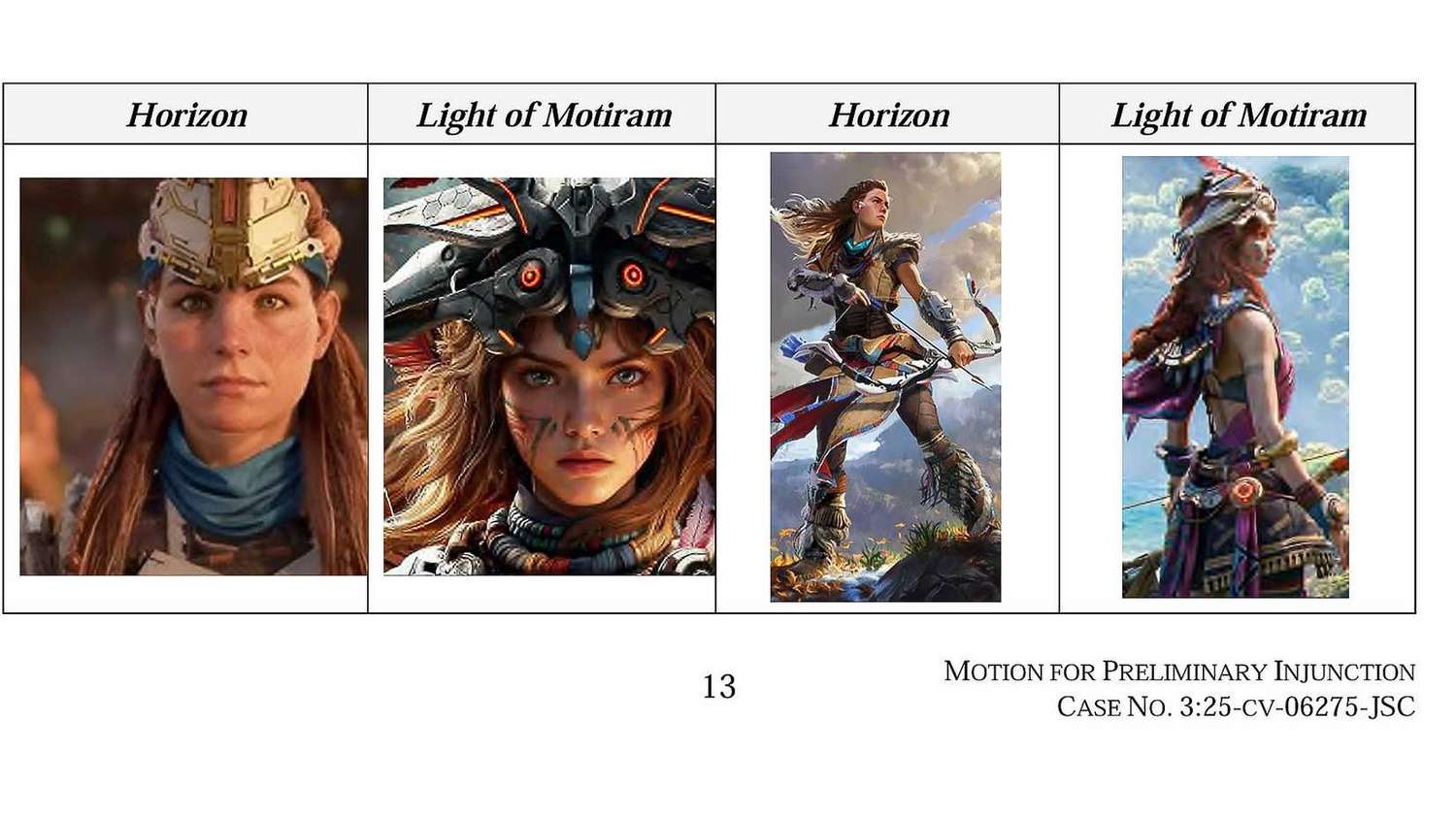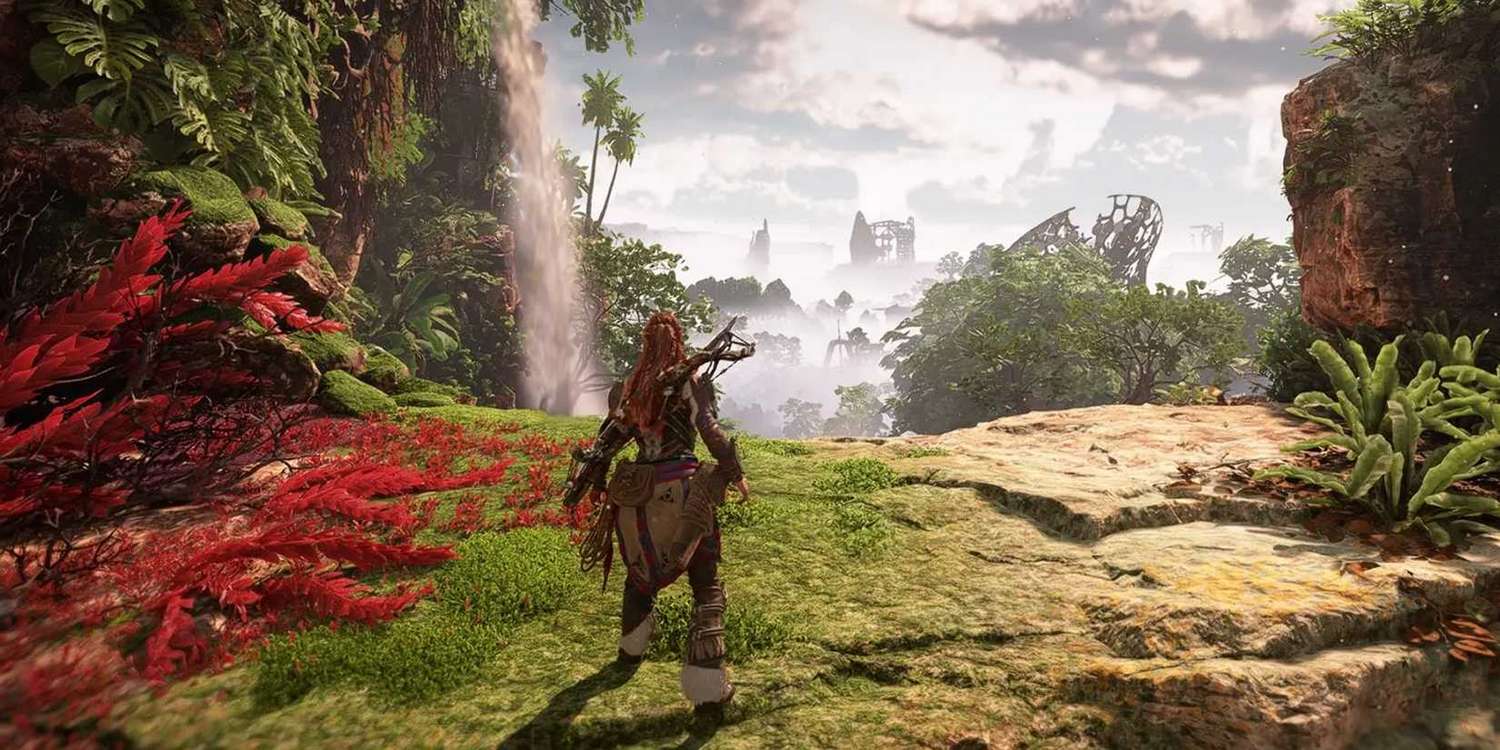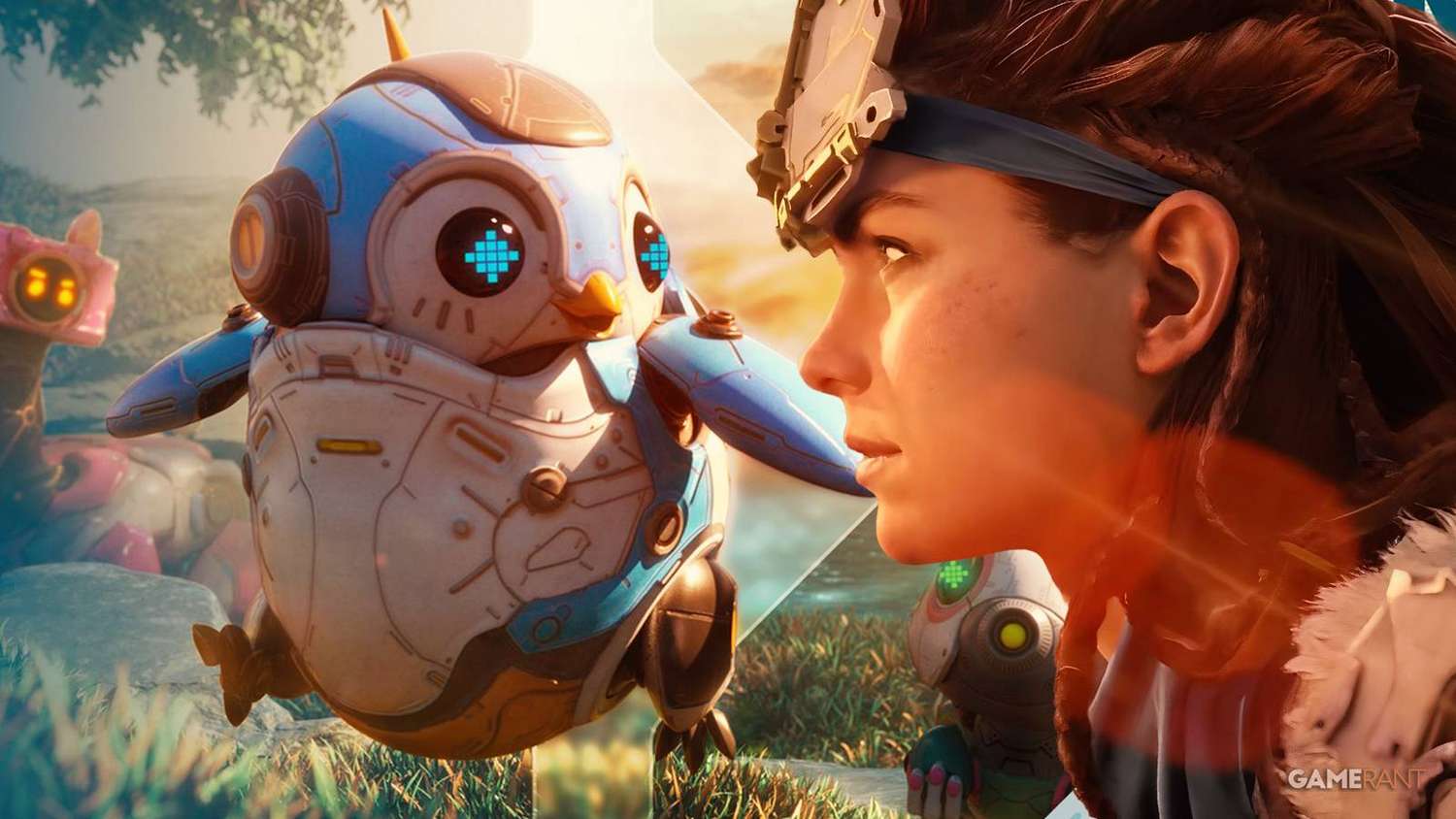Sony Escalates Legal Battle, Demands Preliminary Injunction Against Tencent’s ‘Horizon Knockoff’
Popular Now
 Schedule I
Schedule I
 Minecraft
Minecraft
 League of Legends
League of Legends
 God of War Ragnarök
God of War Ragnarök
 Call of Duty
Call of Duty
 PUBG Mobile
PUBG Mobile
 R.E.P.O
R.E.P.O
 Valorant
Valorant
 EA SPORT FC 25
EA SPORT FC 25
 Sonic the Hedgehog™ Classic
Sonic the Hedgehog™ Classic 
Sony Interactive Entertainment (SIE) has significantly intensified its ongoing legal battle against Tencent Holdings Ltd., filing a motion for a preliminary injunction in a US Federal Court. The motion, submitted this week, seeks to immediately bar the Chinese tech giant from using elements of its upcoming open-world survival game, Light of Motiram, which Sony asserts is a “slavish clone” of its globally acclaimed Horizon franchise.
This high-stakes legal manoeuvre follows Sony’s initial copyright and trademark infringement lawsuit filed in July 2025. The core of Sony’s new filing is the demand to cease all promotion and development utilizing specific elements, most notably a red-haired tribal huntress character that Sony claims is a blatant imitation of Horizon’s protagonist, Aloy, as well as similar visual aesthetics, storyline elements, and even specific musical compositions.
The Heart of the Dispute: Alleged ‘Slavish’ Copying
The controversy first erupted upon the announcement of Light of Motiram, which immediately drew widespread comparisons from journalists and the gaming community to Horizon Zero Dawn and its sequel, Horizon Forbidden West. Sony’s recent legal documents are emphatic, arguing that the similarities go beyond mere genre conventions.
The filing repeatedly calls Light of Motiram a “knock-off game so blatant that the public loudly decried the obvious and pervasive copying of Horizon’s protected elements.” It details a series of specific, protected elements allegedly copied:
- The Aloy Character Mark: A “fierce tribal warrior huntress characterized by fiery red hair.”
- Post-apocalyptic world setting featuring primitive tribal civilizations coexisting with sophisticated, mechanized creature-like robots.
- Core gameplay mechanics involving stealth, resource gathering, and combat against mechanical beasts.
- Similarities in specific music tracks from the game’s promotional materials to two copyrighted compositions from the Horizon Zero Dawn OST.
 Sony argues that this blatant IP infringement is causing “irreparable harm” to the Horizon brand and is creating “consumer confusion,” which jeopardizes the franchise’s continued commercial success, including its ongoing expansion into other media, such as the confirmed Horizon Zero Dawn film adaptation.
Sony argues that this blatant IP infringement is causing “irreparable harm” to the Horizon brand and is creating “consumer confusion,” which jeopardizes the franchise’s continued commercial success, including its ongoing expansion into other media, such as the confirmed Horizon Zero Dawn film adaptation.
Tencent’s Defence and Sony’s Rebuttal
In response to the original July lawsuit, Tencent filed a motion to dismiss, arguing that Sony was attempting to assert an “impermissible monopoly on genre conventions.” They claimed that elements like post-apocalyptic settings, robot beasts, and red-haired protagonists are “well-trodden tropes” common in popular culture. Tencent also pointed to developer statements regarding Horizon Zero Dawn’s inspiration from earlier titles like Enslaved: Odyssey to the West.
Sony’s new preliminary injunction motion slams Tencent’s defence as “nonsense,” claiming Tencent is playing a “shell game” to avoid liability by leveraging its complex corporate structure and the fact that they quietly altered or removed promotional screenshots and imagery from the Light of Motiram Steam page following the initial lawsuit. Furthermore, Sony emphasizes that the damage is already done, citing numerous public and media reactions that immediately identified Light of Motiram as an obvious rip-off.
A significant detail revealed in the filings is Sony’s claim that Tencent had previously pitched a licensed Horizon mobile game to them, which Sony declined, only for Light of Motiram to be announced shortly thereafter. This is presented by Sony as evidence of wilful and deliberate copying.
 Implications for the Global Gaming Industry
Implications for the Global Gaming Industry
This lawsuit represents a critical moment for Intellectual Property in the gaming industry. The US District Court for the Northern District of California will host the hearing for the preliminary injunction in November 2025. If granted, the injunction would force Tencent to immediately cease all development and promotion utilizing the disputed elements until the lawsuit is fully resolved, a major blow to Tencent’s development schedule.
The outcome of this case could set a vital legal precedent regarding the protection of distinct combinations of aesthetic and narrative elements in AAA video game development. Legal experts suggest that the court will have to determine where “well-trodden tropes” end and copyright infringement begins, especially when a game’s total look and feel so closely aligns with a major, existing franchise.
For game publishers and developers globally, the ruling will underscore the necessary balance between drawing inspiration from established genres and crossing the line into unlawful duplication. Investors in gaming IP and those monitoring high-stakes CPC keywords like digital entertainment copyright are watching closely, as the verdict will undeniably influence future international development and licensing strategies.
The fight between these two gaming behemoths over one of PlayStation’s most valuable franchises is far from over, but Sony’s aggressive pursuit of an injunction demonstrates a clear, unyielding commitment to defending the integrity of its Horizon franchise brand. The industry awaits a decision that will likely reshape the landscape of video game copyright law.








 Implications for the Global Gaming Industry
Implications for the Global Gaming Industry